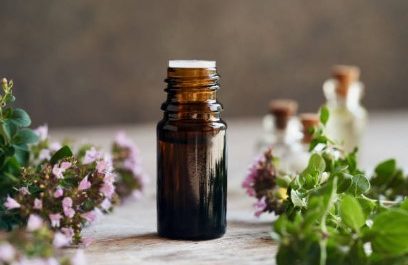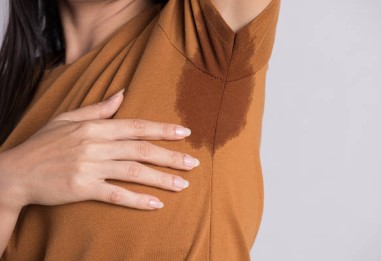Curing body odor permanently can be challenging as it often depends on the underlying causes and individual factors. However, there are steps you can take to manage and reduce body odor over time. Here are some suggestions:
Practice good hygiene
Maintaining proper hygiene is essential in managing body odor. Take daily showers or baths using an antibacterial soap to cleanse your body thoroughly. Pay particular attention to areas prone to sweating, such as the underarms, groin, and feet. Dry your skin well after bathing to prevent bacteria from thriving in moist environments.
Use an effective antiperspirant or deodorant
Apply an antiperspirant or deodorant to clean, dry skin. Antiperspirants help reduce sweating, while deodorants mask or neutralize odor. Look for products that are specifically designed to address body odor and choose options that suit your personal preferences and needs.
Wear breathable clothing
Opt for loose-fitting clothes made of natural fibers like cotton or linen. These materials allow better air circulation, which can help reduce sweating and prevent the buildup of odor-causing bacteria.
Wash clothes properly
Regularly wash your clothes, especially those that come into direct contact with areas prone to sweating. Use a good-quality laundry detergent and follow the care instructions on clothing labels. Washing clothes thoroughly helps remove bacteria, sweat, and odor.
Manage stress
Stress and anxiety can contribute to increased sweating and body odor. Practice stress management techniques, such as exercise, meditation, deep breathing exercises, or engaging in activities that help you relax and unwind.
Watch your diet
Certain foods and spices can contribute to body odor. Reduce the consumption of strong-smelling foods like garlic, onions, and spicy foods. Instead, include more fresh fruits, vegetables, whole grains, and lean proteins in your diet.
Stay hydrated
Drinking enough water helps flush toxins out of your body, which can contribute to reducing body odor. Aim to drink an adequate amount of water throughout the day.
Address underlying medical conditions
Sometimes, body odor can be a symptom of an underlying medical condition. If you’ve tried various remedies and are still experiencing persistent body odor, it’s advisable to consult with a healthcare professional or dermatologist. They can evaluate your situation, perform any necessary tests, and provide appropriate treatment options.
Remember, everyone’s body chemistry is unique, and it may take time to find the most effective approach for managing body odor. By implementing good hygiene practices, making lifestyle adjustments, and addressing any underlying causes, you can significantly reduce body odor and improve your overall scent.
Example of Underlying Medical conditions Causing Body Odor
There are several underlying medical conditions that can contribute to body odor. It’s important to note that while body odor can be a symptom of these conditions, it does not necessarily mean that everyone with body odor has an underlying medical condition. Here are a few examples:
Hyperhidrosis
Hyperhidrosis is a condition characterized by excessive sweating, which can lead to persistent body odor. It can affect various areas of the body, including the underarms, feet, and palms. People with hyperhidrosis may experience sweating even in cool temperatures or without any physical exertion.
Trimethylaminuria (TMAU)
TMAU, also known as fish odor syndrome, is a rare genetic disorder that impairs the body’s ability to break down trimethylamine (TMA), resulting in a strong fishy odor in the body, breath, and urine. This condition is caused by a deficiency in the enzyme responsible for metabolizing TMA.
Diabetes
People with poorly controlled diabetes may experience a fruity or sweet odor on their breath, which can sometimes extend to body odor. This is due to the presence of high levels of ketones in the body as a result of uncontrolled blood sugar.
Kidney or liver disease
Certain kidney or liver conditions can affect the body’s ability to eliminate waste products properly. When these waste products accumulate in the body, they can lead to a foul-smelling odor in the breath, sweat, and urine.
Metabolic disorders
In some rare metabolic disorders, such as phenylketonuria (PKU), maple syrup urine disease (MSUD), or tyrosinemia, the body is unable to break down specific compounds properly. This can result in abnormal body odors that are often described as musty or sweet.
It’s important to consult with a healthcare professional or dermatologist if you suspect an underlying medical condition is contributing to your body odor. They can evaluate your symptoms, perform any necessary tests or examinations, and provide an accurate diagnosis and appropriate treatment plan.
What is the Difference between Antiperspirant and Deodorant?
Anti-perspirants and deodorants are both commonly used products for managing body odor, but they work in different ways:
Anti-perspirants
Anti-perspirants are designed to reduce sweat production. They contain aluminum compounds, such as aluminum chloride or aluminum zirconium, which form temporary plugs in the sweat ducts. These plugs block the release of sweat to the skin’s surface, thereby reducing the amount of sweat that reaches the surface and minimizing moisture. As a result, anti-perspirants can help control both odor and wetness.
Deodorants
Deodorants, on the other hand, focus on combating odor rather than sweat. They work by neutralizing or masking the smell associated with body odor. Deodorants typically contain ingredients that can kill odor-causing bacteria or inhibit their growth, such as alcohol, triclosan, or antibacterial agents. They may also contain fragrances to provide a pleasant scent.
It’s worth noting that some products available on the market combine both anti-perspirant and deodorant properties, offering sweat reduction and odor control in a single product. These are often labeled as “antiperspirant deodorants” or “combination products.”
When choosing between an anti-perspirant and a deodorant, consider your personal preferences and needs. If excessive sweating is a concern, an anti-perspirant may be more effective in managing both sweat and odor. However, if you don’t sweat excessively but want to address body odor, a deodorant might be sufficient.
Keep in mind that individual experiences and reactions to these products can vary. If you have sensitive skin or experience any adverse reactions, it’s advisable to choose products labeled as hypoallergenic or consult with a healthcare professional for personalized recommendations.
Side Effects of Antiperspirant
Antiperspirant is potent. Because it actively blocks sweating (a biological, natural body function), it’s labeled as a drug by the FDA.
However, there’s also a lot of confusion and misinformation regarding antiperspirant side effects.
Is Antiperspirant Bad For You?
Antiperspirant has stirred a lot of controversy and questions in recent years, specifically around side effects and its relationship to breast cancer and tumors.
The concerns stem from the use of aluminum, the active ingredient in antiperspirant.
Antiperspirant and Cancer
One of the top concerns is the link between antiperspirant and breast cancer.
A few studies theorize that using antiperspirants increases your chance of getting breast cancer. Because you apply antiperspirants near the breast, some researchers were concerned about a possible connection between antiperspirant and breast cancer.
But many of the studies that ignited the hype were flawed from the beginning. Countless experts and studies, including the National Cancer Institute, found no evidence that linked antiperspirants to breast cancer.
Antiperspirant and Parabens
Parabens are another commonly cited concern. Parabens are preservatives typically used in deodorants and antiperspirants. They mimic estrogen in the body and have been reportedly found in breast tumors.
However, scientific evidence doesn’t support this claim, and most deodorants and antiperspirants no longer contain parabens.
How to Use Antiperspirant
Yes, antiperspirant can help you sweat less — but that doesn’t mean you should go crazy. Side effects can happen, especially if it’s not applied correctly. Overuse can irritate sensitive skin and even cause rashes and redness.
When using antiperspirant, make sure to follow these tips to avoid any side effects:
Follow instructions carefully – Many antiperspirants need to be applied the night before for maximum effectiveness.
Use an emollient or moisturizer – Using a moisturizer can prevent skin irritation. (You can also look for antiperspirants that contain moisturizer.)
Start small – Don’t go immediately for the prescription or clinical-strength antiperspirant. Start slow, see how your skin reacts and find the one that works for you.







